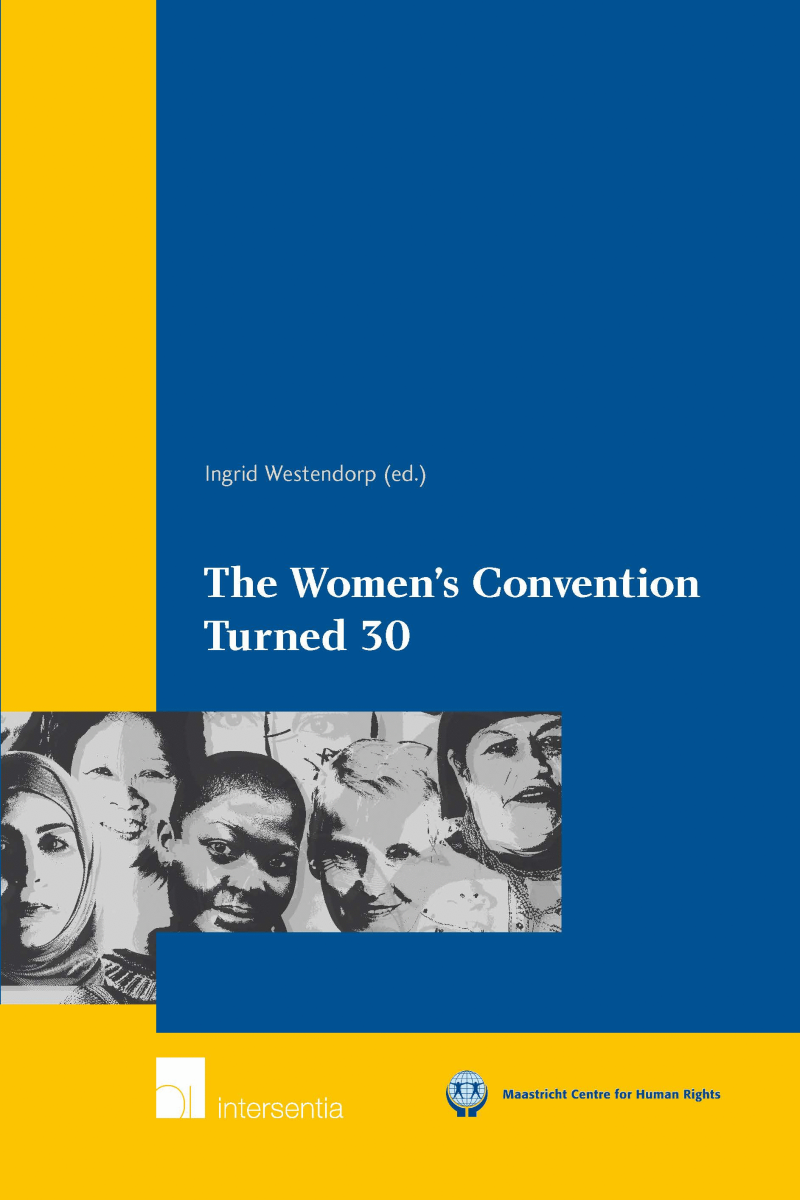 maestro
mastercard
visa
maestro
mastercard
visa

The Women's Convention Turned 30
Achievements, Setbacks, and Prospects

The Convention on the Elimination of All Forms of Discrimination Against Women is a treaty for all girls and women in this world. After 30 years it is still valid and necessary both in developed and in developing States. This image is clearly conveyed by the authors of this book, who represent a wide variety of national and cultural backgrounds, and who have put the implementation of the provisions in the Convention to the test both in modern and in traditional societies. In addition, some chapters pay attention to issues that are not contained in the treaty itself but that greatly impact the realization of women’s human rights, such as gender mainstreaming, gender-based violence, and corruption. The strengths and weaknesses, and the future potential of the Convention as well as the work of its monitoring body are critically analyzed and compared to other human rights treaties and organs. It becomes clear that, irrespective of the existing flaws, the Convention is the best option for achieving women’s equality.
With contributions by Margreet de Boer, Martine Boersma, Marjolein van den Brink, Fons Coomans, Tilly Draaisma, Cees Flinterman, Gerard-René de Groot, Sille Jansen, Menno T. Kamminga, Jasper Krommendijk, Pauline Kruiniger, Fleur van Leeuwen, Phyllis Livaha, Zoé Luca, Nishara Mendis, Jule Mulder, Rolanda Oostland, Kate Rose-Sender, Samira Sakhi, Dagmar Schiek, Jennifer Sellin, Laura Visser, Lisa Waddington, Antonia Waltermann, Ingrid Westendorp, Anja Wiesbrock, Marjan Wijers.
| Type of product | Book |
|---|---|
| Format | Paperback |
| EAN / ISSN | 9781780680859 |
| Series name | Maastricht Series in Human Rights |
| Weight | 854 g |
| Status | Available |
| Number of pages | xxxii + 160 p. |
| Access to exercice | No |
| Publisher | Intersentia |
| Language | English |
| Publication Date | Oct 17, 2012 |
| Available on Strada Belgique | No |
| Available on Strada Europe | No |
| Available on Strada Luxembourg | No |
Downloads
- Table of Contents
- Chapter 1. Introduction
Ingrid Westendorp - Chapter 2. The United Nations and the Promotion and Protection of Women’s Human Rights: A Work in Progress
Fleur van Leeuwen - Chapter 3. The Essence of Discrimination Against Women: An Interpretation by CEDAW and the European Union
Ingrid Westendorp, Antonia Waltermann - Chapter 4. The Principle of Equality
Rolanda Oostland - Chapter 5. Temporary Special Measures under the Women’s Convention and Positive Action under EU Law: Mutually Compatible or Irreconcilable?
Lisa Waddington, Laura Visser - Chapter 6. Using Culture to Achieve Equality
Ingrid Westendorp - Chapter 7. ‘Because to me, a Woman Who Speaks in Public is a Public Woman’: 30 Years Women’s Convention and the Struggle to Eliminate Discrimination of Women in the Field of Trafficking and Prostitution
Marjolein van den Brink, Marjan Wijers - Chapter 8. Articles 7 and 8: The Added Value of the Women’s Convention and the Dutch Case of the Christian Party
Margreet de Boer - Chapter 9. Equal Treatment of Women and Men in Nationality Law
Gérard-René de Groot - Chapter 10. Barriers to Girls’ Right to Education in Afghanistan
Fons Coomans, Samira Sakhi - Chapter 11. Equal Employment Opportunities and Equal Pay: Measuring EU Law against the Standards of the Women’s Convention
Anja Wiesbrock - Chapter 12. Women’s Right to Health and International Trade – Special Reference to the GATS and the TRIPS Agreement
Jennifer Sellin, Nishara Mendis - Chapter 13. Eradicating Female Circumcision: Changing a Harmful Social Norm through the Women’s Convention
Phyllis Livaha - Chapter 14. Equality and Economic and Social Life Including Implications for the European Union
Dagmar Schiek, Jule Mulder - Chapter 15. Rural Women’s Right to Land and Housing in Times of Urbanization
Ingrid Westendorp - Chapter 16. Equality of Men and Women before the Law: Towards a New Dutch Law on Names
Tilly Draaisma - Chapter 17. Article 16 of the Women’s Convention and the Status of Muslim Women at Divorce
Pauline Kruiniger - Chapter 18. CEDAW: A Full Human Rights Treaty Body?
Cees Flinterman - Chapter 19. Due Diligence Mania
Menno Kamminga - Chapter 20. Reservations to the Women’s Convention: A Muslim Problem Ill-addressed?
Zoé Luca - Chapter 21. The Optional Protocol to the Women’s Convention: An Assessment of Its Eff ectiveness in Protecting Women’s Rights
Sille Jansen - Chapter 22. Emerging from the Shadows: Violence Against Women and the Women’s Convention
Kate Rose-Sender - Chapter 23. The Impact of Corruption upon Women’s Rights: A Neglected Area?
Martine Boersma - Chapter 24. The Impact and Effectiveness of State Reporting under the Women’s Convention: The Case of the Netherlands
Jasper Krommendijk